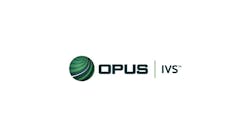In an email distributed within the same month, PartsTrader communicated to suppliers who had declined the offer to participate in the quoting process that:
"State Farm Select Service repairers will be placing all parts orders related to State Farm claims via the PartsTrader application from [date]. During our discussion you indicated that this was not in your interest to register online with PartsTrader to participate in the intended parts procurement process. We respect your choice and want to make sure you are still able to receive those State Farm orders. With that stated, it is not our intent to come between the relationships you have built with the shops. This e-mail is to confirm that we have now modified your company's configuration to be a "Fax Only Supplier." This means that a repairer can place an order to your company in PartsTrader, and we will send that order to you at the fax number...Note: This process means you will not participate in the quoting process, and repairers may order from suppliers that have quoted first, then direct order any remaining parts to you via the "direct only" option."
Just over a year later, the option to not be a fully active participating supplier was revoked. In an email communication issued in July of 2013, PartsTrader advised Select Service™ repair facilities in certain markets that:
"As you were notified in a previous email, PartsTrader is discontinuing the fax only option for suppliers who choose not to utilize the PartsTrader platform as a fully active participating supplier... When you use PartsTrader after July 31, suppliers which you have nominated to use PartsTrader but have not yet begun to use the PartsTrader application to provide quotes or accept orders, will no longer appear on your system as an available vendor, and therefore will no longer be able to receive orders placed in PartsTrader via fax.... We would of course like you to encourage these suppliers to participate, but you should also identify suppliers for those makes who are participating to avoid any purchasing issues on August 1 or later. We can assure you that we do have participating dealers covering every major vehicle make in the [market] area."
The rules of the game are changing and it is apparent that maintaining the relationships and negotiated deals of participating repair facilities is only a priority, so long as all involved submit to do business in the manner prescribed by State Farm Insurance, and other carriers with similar programs. Today these mandates address parts sourcing and ordering, but there is valid concern that they open the door to future market manipulation and influence over other similarly critical collision businesses purchasing habits as well.
About SCRS
Through its direct members and 40 affiliate associations, SCRS is comprised of over 6,000 collision repair businesses and 58,500 specialized professionals who work with consumers and insurance companies to repair collision-damaged vehicles. Additional information about SCRS including other news releases is avail-able at the SCRS Web site: www.scrs.com. You can e-mail SCRS at the following address: [email protected].
The current business climate is shaping fierce competition in the collision industry services sector, generating an ever-expanding palette of programs positioned to support process improvement. The Society of Collision Repair Specialists (SCRS) has been carefully monitoring the evolving dynamics in the marketplace, and has issued a position statement regarding insurer mandates. The position statement can be found online at www.scrs.com/positionstatements.htm, and as follows:
In representation of collision repair businesses across the United States, The Society of Collision Repair Specialists (SCRS) takes exception to business mandates that property and casualty insurers impose upon collision repair businesses; particularly those that specify required vendors, business platforms or internal processes that must be followed in order to be included in, or avoid being excluded from, certain lines of work. As an example, insurer mandates surrounding parts procurement platforms may inhibit independent collision repair businesses from utilizing parts vendors with whom they have an existing relationship, providing insurers with greater influence and control over the parts supply chain. SCRS believes this control falls outside of the scope of the insurance business. Some insurers are stipulating agreement to these terms, as a condition of being recognized in Direct Repair Programs (DRP). SCRS supports efforts that rightfully seek to eliminate such intrusion into the collision repair business, and enforcement of existing laws, regulations and codes that currently prohibit such actions. It is the opinion of SCRS that voluntary agreements cannot include stipulations which violate existing laws, rules and regulations.
SCRS believes that collision businesses are capable of establishing successful vendor relationships and internal processes that will best accommodate the needs of the consumer, and that service providers will continue to respond to the market with increasingly creative solutions that drive performance for their customers and the respective market entities. We believe that solutions with tangible value propositions will be utilized and supported by the marketplace without the undue influence of insurer mandate.
The encouragement to embrace open platforms to enhance performance, rather than rely on exclusionary program agreements influenced by one or more of the participants, follows an acknowledgement from State Farm Insurance that the nation's largest carrier is transitioning from "piloting" the requirement to use the PartsTrader online part sourcing and ordering program, in select marketplaces, to a tiered national rollout. State Farm Insurance had previously included a provision in their Select Service™ Agreement requiring participating repairers to agree to utilize automated replacement parts locating services or applications, as specified by State Farm Insurance, for ordering and/or sourcing replacement parts.
Unfortunately, as the program rollout developed, so did the rules of engagement surrounding it.
In May of 2012, State Farm Insurance issued a video on their B2B website where Auto Estimatics Consultant George Avery expressed:
"...repairers are in control of who provides your parts, regardless of the part type. We have worked with PartsTrader on a process that [enables] you to maintain your relationships and negotiated deals with your vendors. We understand that relationships with your suppliers are important in managing your business, much in the same way we value our relationship with you."
.gif?auto=format,compress&fit=max&q=45&w=250&width=250)

